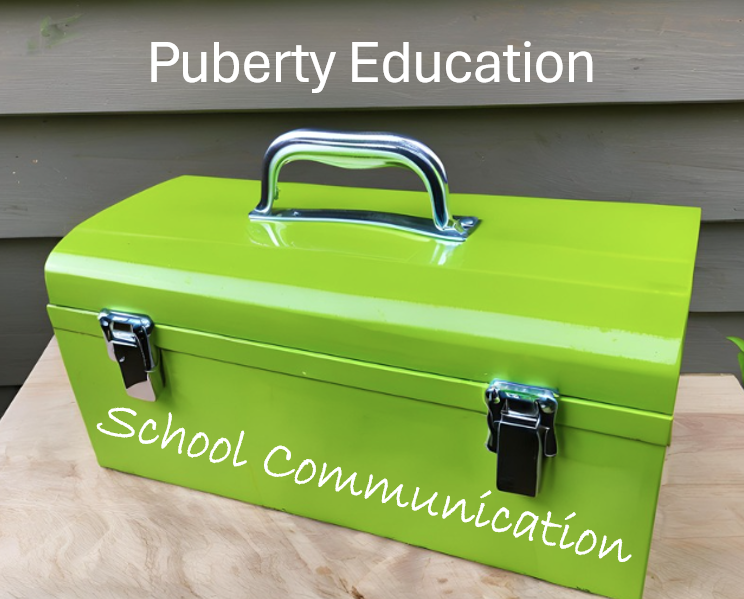Family Engagement 4 is the fourth in a five-part series. Links to the other segments are below.
Most parents want their children to receive accurate and comprehensive sex education[1] in schools. And they want to talk to their children at home to instill their family values related to sexuality. Yet, as many as 40% of adolescents engage in sexual behavior before their parents discuss sexual and reproductive health with them. Let’s look at the reasons parents and schools might have trouble working together to provide the sex education children and adolescents need.
Barriers to Home-School Partnership in Sex Education
Reasons parents might not be engaged in school-based sex education:
- Other time commitments
- Lack of time or motivation
- Perceived embarrassment
- Underestimating the value of sex education
Reasons educators might not engage parents in sex education:
- Concern that it might be awkward for adolescents
- Fear of backlash from parents
- Busy-ness
- Other priorities
- Lack of confidence engaging with parents
Barriers to Parent-Child Communication about Sex Education
Parents’ reasons for not discussing sexual and reproductive health with children:
- Embarrassment
- Inaccurate knowledge
- Low self-efficacy
- Religious and cultural beliefs opposed to comprehensive sex education
- Parental underestimation of their child’s sexual behavior
- Fear that talking to child about sex will lead them to having sexual activity
Adolescent’s reasons for not discussing sex education with parents:
- Feelings of awkwardness
- Generational differences
- Relationship difficulties
- Fear that their parents will assume they are having sex if they ask about it
Factors That Impact Parent-Child Discussions
- Gender of child: Children who identify as girls report the most discussions with their mothers (43%) versus their fathers (7%). Boys have less communication about sex than girls but report similar rates of discussion with mothers (20%) and fathers (18%).
- Gender of parent: Gendered norms lead to more mothers talking about sex education with children than fathers, but little research is available about fathers’ roles as sex educators. More significant impacts result from mother-child communication than from father-child communication. However, among African-Americans, father-son communication decreases adolescent males’ sexual risk behaviors and HIV risk.
- Siblings: are a less important source of sex ed than parents or school.
- Birth order: First born and only children receive more parental attention. Middle children have earlier sex (male), higher rate of pregnancy before age 18, lower use of contraception, and think they should have waited longer for sex.
- Family size: A larger family size tends to reduce interaction and communication between parents and each child. Larger family sizes can also result in a socio-economic disadvantage and reduced supervision of children’s activities and sexual behavior.
Facilitators of family engagement in school-based sex education:
- Find common ground
- Tell stories
- Build respect for each role
- Communicate consistently and clearly
- Increase capacity through education
- Connections with multiple options
Given what we know about these barriers and facilitators of family engagement related to sex education, schools can focus on two efforts:
- Provide parent materials that address the barriers to parental engagement and encourage parent-child communication at home.
- Increase school and teacher confidence to communicate with parents about sex education.
The next segment of this series will explore strategies for enhancing family engagement in sex education.
Be sure to read the other segments of this series:
- Family Engagement 1: What Parents and Teachers Want
- Family Engagement 2: Common Clash Points
- Family Engagement 3: Benefits of Family Engagement
- Family Engagement 4: Barriers and Facilitators of Family Engagement
- Family Engagement 5: Strategies for Family Engagement
Sources:
- “Parents’ views on sex education in schools: How much do Democrats and Republicans agree?” PloS One
- Overwhelming Support for Sexual Health Education in U.S. Schools: A Meta-Analysis of 23 Surveys Conducted Between 2000 and 2016, Journal of Adolescent Health
- “Birth Order and Parental and Sibling Involvement in Sex Education. A Nationally-Representative Analysis,” Sex Education
- “Engaging Parents in Digital Sexual and Reproductive Health Education,” Reproductive Health
- “Why Parents Fear ‘The Talk’ and What Kids Want Out of It,” Rewire
[1] This is called Comprehensive Sex Education (CSE) or Comprehensive Sexual Health Education (CSHE) in the United States and Relationships and Sexuality Education (RSE) in the United Kingdom. This article will refer to this as sex education for brevity.



